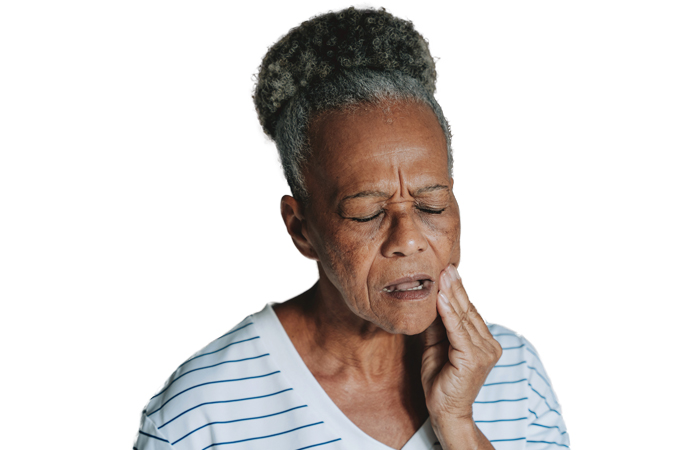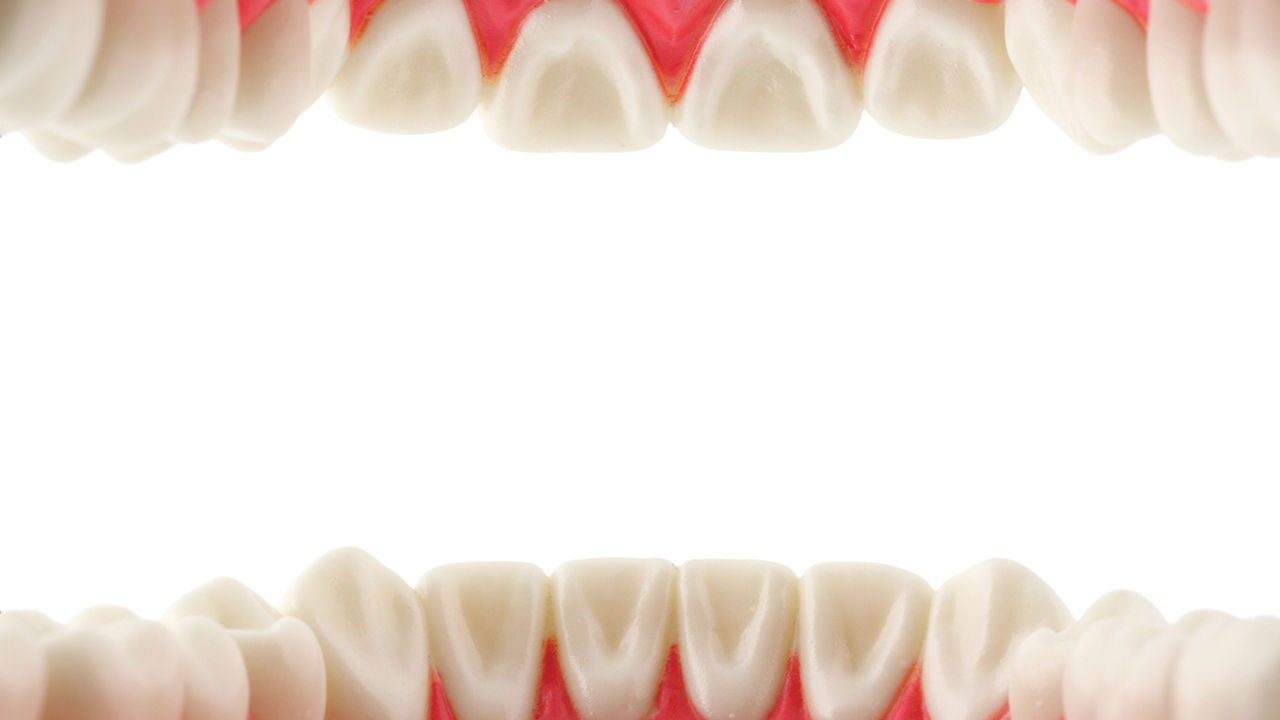In OTC
Follow this topic
Bookmark
Record learning outcomes
Smoking, drinking alcohol and diet all have a significant impact on oral health. Government data shows that just 77 per cent of people brush their teeth twice a day, making pharmacy teams an even more crucial, everyday touchpoint in their communities when it comes to promoting good habits to prevent oral care issues, as well as offering over-the-counter (OTC) products advice and support.
Reshma Malde, pharmacist at John Bell & Croyden, says: “The first step for all OTC complaints is to always ask the WWHAM questions, and look out for any red flags which may need to be referred to the pharmacist or another healthcare professional such as a dentist.”
If the issue is something that can be dealt with using OTC products and advice, the next step is to determine what will work best for the customer.
“Just 77 per cent of people brush their teeth twice a day”
Aches and pains
Oral pain and toothache are common complaints seen in pharmacies, most commonly caused by tooth decay, gum disease, dental abscesses, and tooth damage. Other causes can include sensitivity from worn enamel, impacted wisdom teeth or infections, all of which irritate or inflame the sensitive nerves inside the tooth or gums.
Reshma says there are many solutions that pharmacy teams can offer customers suffering from oral pain: “Using a cold compress externally can reduce swelling, and oral analgesics such as paracetamol or ibuprofen can help. Topical local anaesthetic oral gels containing benzocaine can be recommended for temporary relief and even traditional natural remedies such as clove oil can be used to relieve toothache, but always ensure customers know to see a dentist if the pain persists for more than 48 hours or is getting worse.”
Gummed up
Gum disease is caused when plaque builds up on teeth and irritates the gums. Although a trip to the dental hygienist is a comprehensive – and often expensive – way to remove plaque, there is lots of advice that pharmacy teams can give customers to help them avoid the build-up in the first place.
“Brushing teeth and cleaning between teeth with floss or an interdental brush twice daily will help reduce build-up of plaque,” says Reshma. “It’s important to brush teeth with a fluoride toothpaste and spit, rather than rinsing the mouth with water or using a mouthwash straight after brushing, as that will wash away the toothpaste. You can also remind customers to replace toothbrushes at least every three months and book a dental check-up at least every one to two years – and yearly for under 18s and people who are pregnant or have type 2 diabetes.”
Smoking cigarettes and using other tobacco products poses a major risk to oral health through oral cancers, but also by damaging gum health, so signposting to smoking cessation advice is also important.

Do the floss
Daily interdental cleaning – with floss, interdental brushes, and other devices – is now part of NHS oral health recommendations for maintaining good gum health, ideally before brushing, to loosen debris.
“Pharmacy teams are in a great position to offer practical advice on the benefits of flossing, as well as the different options of flossing products available, including eco-friendly options such as biodegradable floss or reusable handles,” says Reshma Malde, pharmacist at John Bell & Croyden, who offers the following tips on the variety of methods to choose from:
Traditional string floss
- A good option for customers with tight spaces between teeth
- Flosses come as waxed – which glides easier between teeth – or unwaxed
- Wrap floss around fingers, gently slide between teeth, curve around the side of each tooth.
Floss picks
- Great for customers who struggle with handling regular floss, including children or those with limited dexterity
- Single use handles with a pre-strung piece of floss
- Easy to use, especially for teeth further back in the mouth.
Interdental brushes
- For customers with larger gaps, braces, bridges, or gum recession
- Brushes come in various sizes (often colour-coded). Best to ask dentist/hygienist for correct sizing for a snug fit and effective cleaning
- Reusable and should be cleaned after each use
- Use gently, never force between teeth gaps, and brush sides of both teeth and gums.
Electric or water flossers (oral irrigators)
- Best for customers with sensitive gums, implants, orthodontic appliances, or those who dislike string floss
- Uses pressurised water to dislodge debris
- More expensive but can be worth it for those needing extra help.
Unwanted ulcers
The most common causes of mouth ulcers include minor injuries from accidentally biting the inside of the mouth, irritation from braces or sharp teeth, and sensitivity to certain foods like citrus or spicy dishes. Other triggers can include stress, hormonal changes, vitamin deficiencies, or underlying health conditions such as gastrointestinal diseases.
Ulcers should heal on their own in a couple of weeks, but in the meantime, Reshma suggests a number of ways to cope with the discomfort: “Avoiding foods that irritate the mouth ulcer such as spicy, salty, acidic foods and hot drinks will speed up the healing process, reduce the pain and reduce the chance of it reappearing,” she says. “Using a soft-bristled toothbrush may decrease the irritation. Getting a regular check-up may identify the root causes, and it can help to eat a healthy, balanced diet and manage stress through exercise and relaxation techniques to prevent mouth ulcers.”
Reshma also recommends “protective pastes or gels to soothe and protect the ulcer along with antiseptic mouthwashes containing chlorhexidine or hydrogen peroxide-based to rinse the mouth.
“Topical pain relief containing anaesthetics like lidocaine and even using warm salt water as a mouthwash can help” when treating mouth ulcers.
The Oral Health Foundation (OHF) advises that any ulcer that lasts longer than three weeks should be looked at by a dentist, with an OHF spokesperson adding that: “This may be nothing at all, but a mouth ulcer that does not go away after this period may be a sign of mouth cancer. Similarly, other changes in the mouth that do not go away within three weeks, such as red or white patches, any lumps or anything different in the mouth or on the tongue, should be looked at by a dentist or GP to determine if a further referral is necessary.”
Sensitive solutions
Tooth sensitivity can be very uncomfortable and indicate first signs of tooth decay, often caused by high sugar diets and not cleaning teeth and gums properly and regularly.
A good tooth-brushing routine is the best way to keep teeth and gums clean and healthy, and pharmacy teams can recommend high-fluoride toothpaste, or toothpastes formulated for customers with sensitive teeth.
“Fluoride is a vital ingredient in toothpastes as it helps to strengthen and protect the enamel on our teeth, reducing tooth decay for both adults and children,” explains an OHF spokesperson.
All children up to three years old should use a smear of toothpaste with a fluoride level of at least 1,000ppm (parts per million). Children above three should use a pea-sized amount of toothpaste that contains 1,350ppm to 1,500ppm fluoride. Brushing teeth for two minutes and cleaning between teeth with a floss or interdental brush twice daily will protect against tooth decay and other oral health problems.
Once again, there is plenty of advice that pharmacy teams can give to customers about defending their teeth against decay. “As well as reducing general sugar intake and acidic drinks/snacks, you can also suggest customers choose sugar-free medicines where possible”, says Reshma, “and ask if those who smoke would like support and advice about quitting. Remind them to see their dentist if any symptoms don’t improve, as dentists may be able to reverse early tooth decay or fill if there is a cavity in the tooth, to avoid tooth decay reaching the soft tissue”.
Other oral health products such as mouthwash and interdental cleaning products should also be recommended for adults to complete a good oral hygiene routine at home. If customers are unsure about exactly what to choose, the OHF runs an independent accreditation programme evaluating oral health products to ensure that the claims made by manufacturers are clinically proven, giving the consumer added assurance and confidence. This currently covers more than 150 ‘approved’ products on sale all over the world, which come with a ‘smiley’ logo on those it recommends.

A moment on the lips
Pharmacy teams can also offer effective advice on lip care, especially since issues like dry lips and cold sores are so common in colder weather or during times of stress.
Dry, cracked lips are often caused by cold weather, dehydration, vitamin deficiencies, some medications (like isotretinoin), or frequent lip licking.
Reshma Malde, pharmacist at John Bell & Croyden, says pharmacy teams can recommend that customers:
- Stay hydrated as dry lips are often a sign of dehydration
- Use a nourishing lip balm regularly especially before bed and when going outside, with ingredients like shea butter, beeswax, lanolin, ceramides, or hyaluronic acid
- Protect lips from the sun and cold, and use a lip balm with SPF, even in winter
- Exfoliate gently with a soft toothbrush or lip scrub once a week to remove dry, flaky skin
- If severe or persistent, refer to a GP for possible underlying causes (like eczema or nutritional deficiencies).
Cold sores present with early signs of tingling, itching, or burning before a blister appears. They are caused by the herpes simplex virus, which is highly contagious and can be triggered by factors such as stress, illness, sun exposure, or a weakened immune system, leading to outbreaks of painful blisters around the mouth.
Pharmacy teams should:
- Advise customers to act quickly and use antiviral creams containing aciclovir or penciclovir at the first symptoms
- Offer cold sore patches for a discreet and hygienic cover
- Suggest hand hygiene and avoiding sharing cups, towels, or lip products during an outbreak
- Remind customers to avoid kissing and other close contact while the outbreak is active
- Refer to a GP if outbreaks are frequent or severe, the customer has a weakened immune system, cold sores are near the eyes, or the sores that last longer than 10 days.
Angular cheilitis are sore cracks in the corner of the mouth, often caused due to saliva buildup, fungal (candida) or bacterial infection, iron/B vitamin deficiency.
Pharmacy teams can:
- Recommend a barrier balm containing petroleum jelly to protect the area
- For suspected fungal causes, antifungal cream containing miconazole can be recommended if appropriate
- Encourage proper oral hygiene and good-fitting dentures if relevant
- Refer persistent cases to a GP or dentist.
“The best connections between community pharmacies and dentists work both ways”
Joined-up working
Pharmacy teams and dentists both play key roles in supporting community health. When they collaborate effectively, they can provide more holistic, joined-up care for customers.
“Pharmacy teams are ideally placed to support patients and customers with oral health concerns in their local communities, as well as referring people to dentists for both emergency and routine care,” says Ingrid Perry MBE, prevention lead at dental care provider Mydentist.
“We also know from various studies that pharmacy staff express a strong interest in promoting better oral healthcare within their communities and often engage with local and national oral health campaigns such as Mouth Cancer Action Month or National Smile Month,” adds Ingrid, who says the best connections between community pharmacies and dentists work both ways.
“For example, some of our practices are taking part in cardiovascular case finding pilots, where patients can be referred to the local pharmacy for daily blood pressure monitoring, if the readings taken in practice are beyond the programme threshold and may indicate the patient has undiagnosed hypertension.
“Working in partnership with local pharmacy teams and sharing good practice enables us to ‘put the mouth back into the body’. This collaborative work helps us to take a holistic approach to healthcare rather than oral care being seen as an element of healthcare in isolation.”
By encouraging good oral care habits and offering clear, practical advice, pharmacy teams can make a real difference to customers’ long-term dental health and build their oral care confidence.
Further information
The Oral Health Foundation has information about common concerns, as well as recommended products, at: dentalhealth.org.

